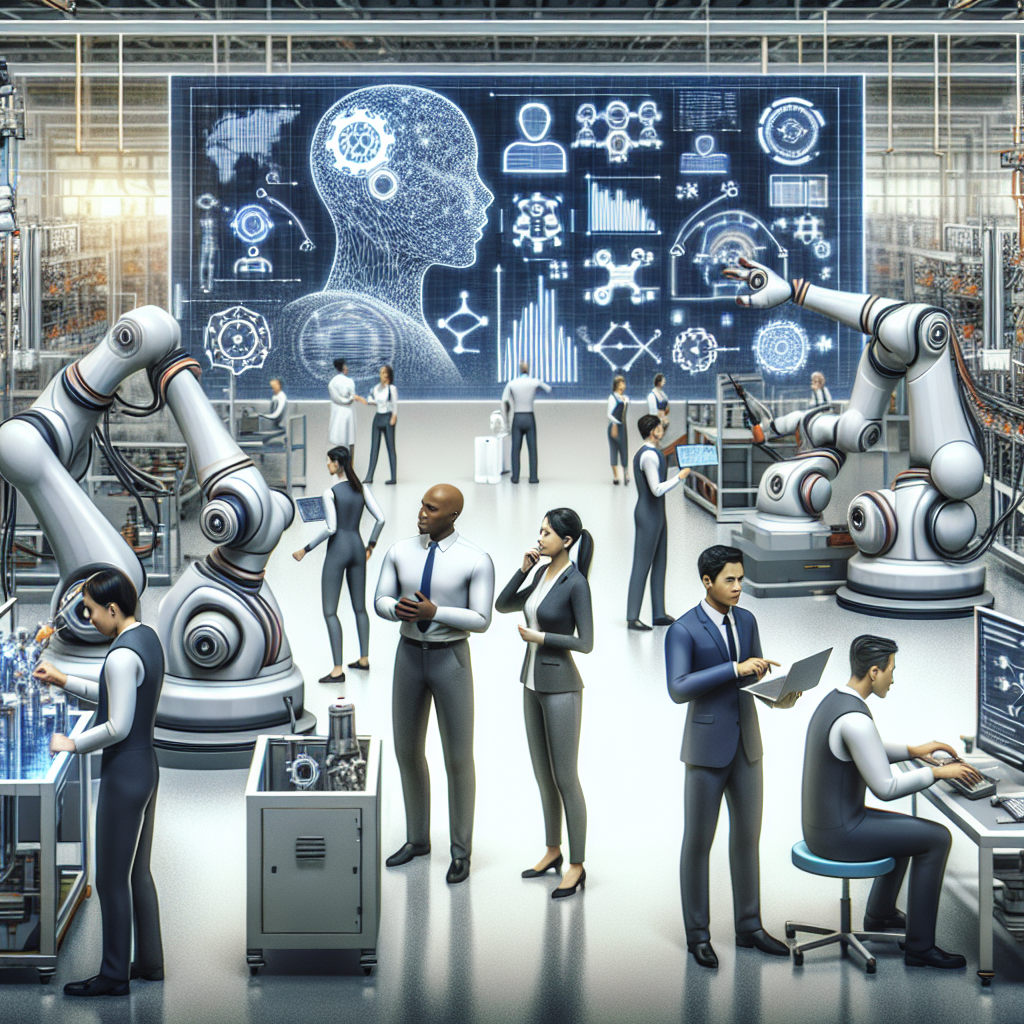The Impact of AI on Manufacturing Workforce Management
In recent years, the manufacturing industry has seen significant advancements in technology, particularly in the realm of artificial intelligence (AI). AI has the potential to revolutionize the way manufacturing companies manage their workforce, leading to increased productivity, efficiency, and profitability. However, it also raises concerns about job displacement and the future of work in the industry. In this article, we will explore the impact of AI on manufacturing workforce management and address some common questions and concerns.
AI in Manufacturing Workforce Management
AI technology has the capability to streamline and optimize various aspects of workforce management in the manufacturing industry. One of the key areas where AI can make a significant impact is in workforce scheduling. AI-powered algorithms can analyze historical data, production schedules, and employee availability to create optimized schedules that maximize efficiency and minimize labor costs. This can help manufacturing companies reduce overtime expenses, improve employee satisfaction, and ensure that production targets are met on time.
Another area where AI can be beneficial is in workforce monitoring and performance management. AI-powered tools can analyze real-time data from sensors and machines on the shop floor to track employee performance, identify bottlenecks in production processes, and provide insights for continuous improvement. This can help manufacturing companies identify areas for improvement, enhance employee training and development, and ultimately increase operational efficiency.
Additionally, AI can also be used for predictive maintenance in manufacturing plants. By analyzing data from sensors and machines, AI algorithms can predict when equipment is likely to fail, allowing maintenance teams to proactively address issues before they cause production delays. This can help manufacturing companies reduce downtime, extend the lifespan of their equipment, and improve overall productivity.
Challenges and Concerns
While AI has the potential to bring significant benefits to manufacturing workforce management, it also raises several challenges and concerns. One of the primary concerns is the potential for job displacement. As AI technology becomes more advanced, there is a fear that it could replace human workers in certain roles, leading to unemployment and economic instability. However, proponents of AI argue that while some jobs may be automated, new roles will be created that require human skills such as creativity, problem-solving, and emotional intelligence.
Another challenge is the need for upskilling and reskilling of the workforce. As AI technology becomes more prevalent in manufacturing, employees will need to acquire new skills to effectively work alongside AI-powered systems. This may require investing in training programs, education initiatives, and career development opportunities to ensure that employees are equipped to succeed in a digitalized workplace.
Furthermore, there are concerns about data privacy and security in the use of AI for manufacturing workforce management. As AI algorithms rely on vast amounts of data to make decisions, there is a risk that sensitive employee information could be compromised. It will be crucial for manufacturing companies to implement robust data protection measures, compliance with regulations such as GDPR, and ethical guidelines to safeguard the privacy and security of their workforce data.
FAQs
1. Will AI replace human workers in manufacturing?
While AI has the potential to automate certain tasks in manufacturing, it is unlikely to replace human workers entirely. Instead, AI is more likely to augment human capabilities, leading to new roles and opportunities for employees to collaborate with AI-powered systems.
2. How can manufacturing companies prepare for the impact of AI on workforce management?
Manufacturing companies can prepare for the impact of AI on workforce management by investing in training programs, upskilling initiatives, and career development opportunities for their employees. It is also important to establish clear communication channels with employees, address concerns about job displacement, and involve them in the adoption of AI technology.
3. What are the benefits of using AI for manufacturing workforce management?
Some of the benefits of using AI for manufacturing workforce management include improved workforce scheduling, enhanced performance management, predictive maintenance, and increased operational efficiency. AI can help manufacturing companies optimize their workforce resources, reduce costs, and achieve higher levels of productivity.
4. What are the ethical considerations in using AI for manufacturing workforce management?
Ethical considerations in using AI for manufacturing workforce management include data privacy and security, algorithm bias, and transparency in decision-making. It is important for manufacturing companies to establish ethical guidelines, comply with regulations such as GDPR, and ensure that AI systems are used responsibly and ethically.
In conclusion, the impact of AI on manufacturing workforce management is significant and multifaceted. While AI has the potential to bring numerous benefits to the industry, it also raises challenges and concerns that must be addressed. By investing in training programs, upskilling initiatives, and data protection measures, manufacturing companies can effectively leverage AI technology to optimize their workforce management practices and drive innovation in the industry.

